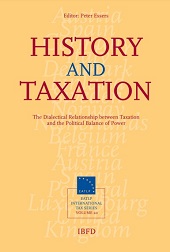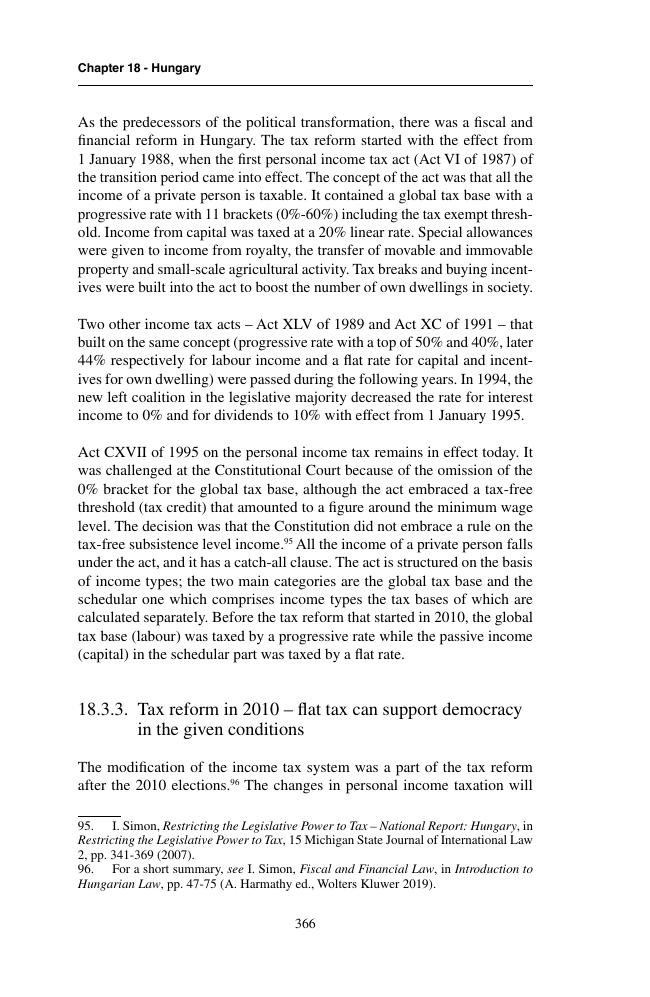History and taxation : the dialectical relationship between taxation and the political balance of power : 2021 EATLP Congress Antwerp 3-4 June 2021
xl, 769 p.
Includes bibliographical references.
In this book, the historical relationship between taxation and the political balance of power is investigated. The main goal is to test the hypothesis that a dialectical relationship exists between taxation and the political balance of power.Taxes can be used by those who are in power to maintain their power and, if possible, extend it. Then, there can be a counter-reaction, leading to a synthesis with a new balance of power with new taxes. The new tax system can, for example, initiate another reaction with political consequences.
This presumed dialectical relationship is tested against experiences in 26 states, based on a unique overview of historical iconic tax events, with famous examples like the Eighty Years' War between the Netherlands and Spain, the Glorious Revolution, the Boston Tea Party and the French Revolution. Most of the iconic tax events are related to the famous principle of no taxation without representation. This was first understood as no taxation without consent of the elite and later evolved towards no taxation without a formal law adopted by the parliament.Recently, there have been signs that many people no longer recognize themselves in politics in general and in national parliaments in particular.
This can lead to developments that threaten the stability of the actual balance of power, likely with new consequences for taxation. This book provides abundant proof of how dictators have abused tax systems to suppress (presumed) enemies of the regime and enforce societal reforms. In the 20th century, there have been notorious examples of these kinds of repressive taxes in national-socialist and communist regimes.
There have also been iconic tax events that supported democracy and the emancipation of citizens. However, democratic taxes sometimes also lead to threats to democracy, e.g. if these taxes cause conflicts with the equality principle or do not sufficiently respect the rights of minorities or fundamental rights.Part 1 of this book is the General Report, with overall conclusions. Part 2 contains seven thematic reports, and Part 3 contains 26 national reports. [Publisher's text]
Proceedings.
Special access authorizations may apply; please contact us for further information.
-
Information
ISBN: 9789087227777
DISCIPLINES



